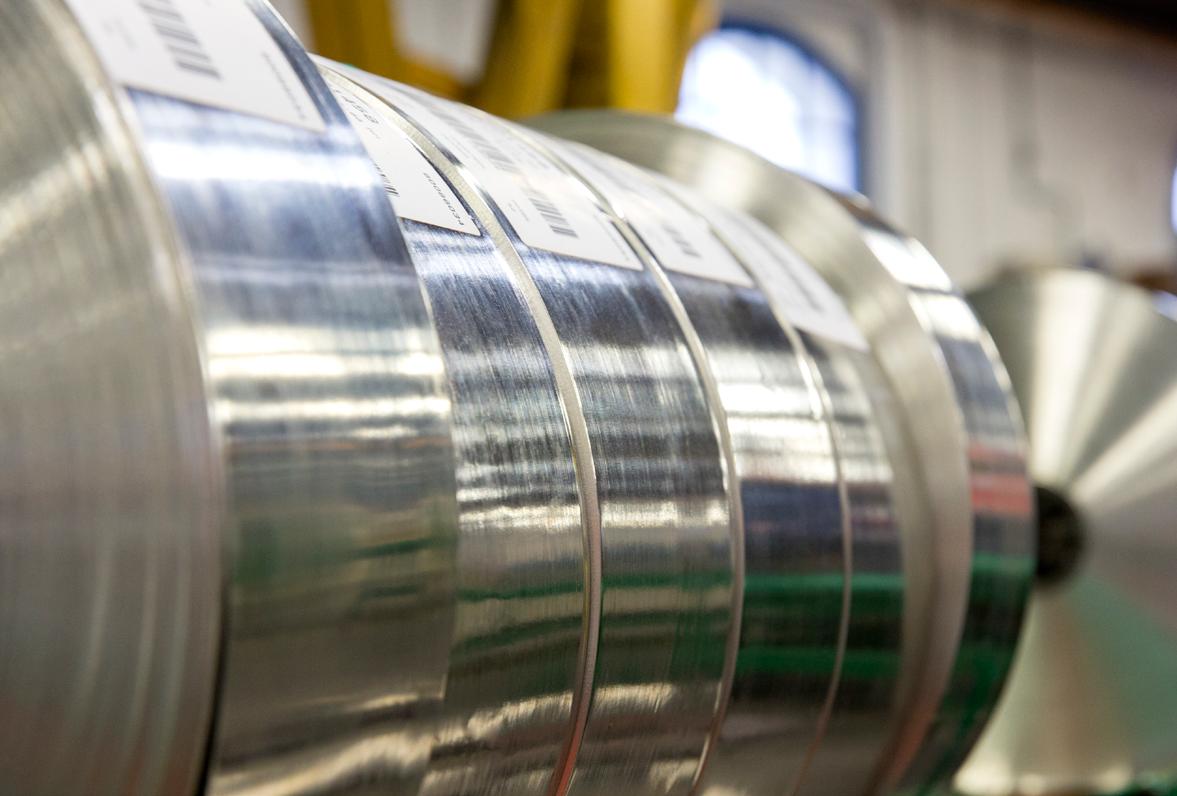
4 minute read
Raw materials crisis : coming out stronger from the current situation
2021 has been synonymous with unprecedented challenges for the wine and spirits industry, due to the closure of tourist borders and non-essential businesses such as bars and restaurants. On top of this, complicated weather conditions for vineyards led to numerous losses and, consequently, historically low worldwide production.
Our industry was also hit hard by soaring raw material costs. From the fruit used in the production of certain spirits to the product’s packaging components, the entire industry has been impacted.
Advertisement
To discuss this topic in more detail, Mr. ChangSheng Wu, Chief Procurement Officer for the Amcor group, shares his vision with us.
In your opinion, what are the main challenges for the packaging industry right now ? How do these challenges materialize ?

First of all, it should be noted that we are facing an unprecedented situation. In my 25 year career, I have never seen anything like this!
There are multiple supply disruptions everywhere, leading to soaring raw material and indirect costs. Also, from January to April 2021, we had to face many cases of force majeure around the world that impacted the packaging industry.
The main case of force majeure concerns Europe in particular, where technical failures occurred at the production site lines of our suppliers, thus limiting the supply to our sites.
A secondary case of force majeure involves the extreme weather conditions that occurred in the United States. Many petrochemical companies located in Texas, whose infrastructures were not equipped to deal with such conditions, had to partially close, which consequently led to global shortages.
These cases of force majeure have directly impacted the raw materials that we buy, as well as the production of plastic, resins, and other films.
And what about aluminium ?
Aluminium, an important component of the closures for wines and spirits has not been immuned to the crisis either! There are many reasons for this.

The COVID-19 crisis has led to some profound changes in consumption habits. For example, more users are now turning to electric cars, and they use batteries made from aluminum. The construction industry, a huge consumer of aluminium, has also seen demand explode. Finally, during the different lockdowns, domestic demand also grew significantly.
The second reason is geopolitical. In order to counter competition deemed to be unfair, the European Commission adopted anti-dumping measures on aluminium imported from China, leading to complications for the proper functioning of under-capacity production in Europe.
These factors taken together explain why packaging has been so impacted by this crisis: an extremely volatile market coupled with a general failure to meet demand.
You also mentionned "indirect effects" caused by COVID-19. What are these ?
COVID-19 has clearly led to other indirect consequences. For example, during the different lockdowns, the market share of online sales experienced strong growth. As a result, sea freight was requisitioned to cope with this demand and supply households. As a supplier, we were given little space on these shipping lines, which are our preferred transportation channels. Furthermore, as a result of increased demand, these transport flows quadrupled in price.
This supply and demand imbalance consequently caused inflation, which also affected the price increase in aluminium. Therefore, the entire industry was affected.
How as Amcor, as a group, dealt with all of this ?
It should be noted that the Amcor Group is not the only one dealing with problems. We are talking about difficulties affecting the entire industry, on a never seen before scale. Amcor, as the leading international group in packaging, has striven to pull out all the stops it has in order to limit this crisis’s impact.
Faced with this situation, our main goal is to ensure that our customers are satisfied. Our group is notably a supplier of pharmaceutical products and food packaging, so it is therefore imperative for us to be able to serve them.
How does Amcor intend to fulfill that philosophy ?
Above all, we are fortunate to be one of the predominant packaging manufacturers in the industry. As a result of this, we have long-standing relationships with our suppliers as well as our customers, who are well aware that we’re doing everything we can to meet their demands.
Whenever we can, we work in partnership with our suppliers to develop new materials. Our R&D (Research and Development) teams and our plants are working together to find alternatives to current packaging materials.
How do you think this crisis is going to evolve ?
Unfortunately, I cannot predict the future. However, since the COVID-19 pandemic is not yet behind us, the market will likely remain very volatile and anxious, regardless of whether it is aluminum, energy, or transportation. In my opinion, e-commerce will continue to grow and there will also continue to be changes in consumer behavior. Yes, the times that lie ahead are unfortunately uncertain, but I am hopeful that we can get through this crisis together.







